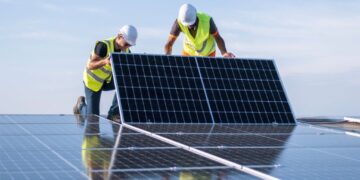In its quest to deliver affordable and clean energy to millions of rural households living without electricity, Community Energy and Social Enterprise Limited (CESEL) has unveiled dPower, its Diaspora focused solar power initiative.
Nigeria’s Renewable energy policy aims to increase power generation from renewable energy sources from 13 per cent in 2015 to 23 per cent in 2025 and 36 per cent in 2030.
The deployment of the solar home systems is expected to create 3,000 jobs.
Speaking at the launch at the Federal University of Technology, Akure(FUTA), Patrick Tolani, Chief executive officer, CESEL said the initiative was borne out of the need to boost the power sector with part of the Diasporan remittance.
In his words, “We remit about $25 billion into Nigeria annually. So, we decided to find a means of harnessing this money.
“Out of this amount, we want to put $1 billion into the power sector.
“We are reaching out to diasporans and telling them that we can provide a simple solar system for the homes of their parents.
“We are expecting that millions of Nigerians will join this program.
“If you can find a reasonable means to give us the money, we do the job,” he stated.
According to him, FUTA has released one of its offices as the anchor office for dPower.
Explaining how it works, he said,” What we have designed is very basic.
“Specifically, we have the 1 kw, that can power a house conveniently.
“We also have the 3 kw and 5 kw solar home system.
“When you pay to a threshold, we can now go to the desired place to install.
“We are working with others to make this work whereby Diasporans can pay by installment.
“Small businesses will be able to stay open for longer hours after sunset, students can continue their studies in the evening, and off-grid families can charge phones or listen to radios in their own homes.
Speaking further, he said a major factor behind the project is the job creation potential it offers.
“We want to put youths into employment.
“Renewable energy particularly the solar energy subsector offers tremendous opportunities for massive employment.
“This is because the oil and gas sector that gives government about 90 per cent of its revenue employs less than 1 per cent of the population.
“Our target is to create 3,000 jobs and increase the GDP.
“There’s virtually no part of the country without solar potential,” he said.
He therefore requested the support of the Nigerian Diasporan Commission.
“We need the Diasporan Commission to make this a success.
“To solve this energy problem, we need people of like minds that can work together”, he added.























